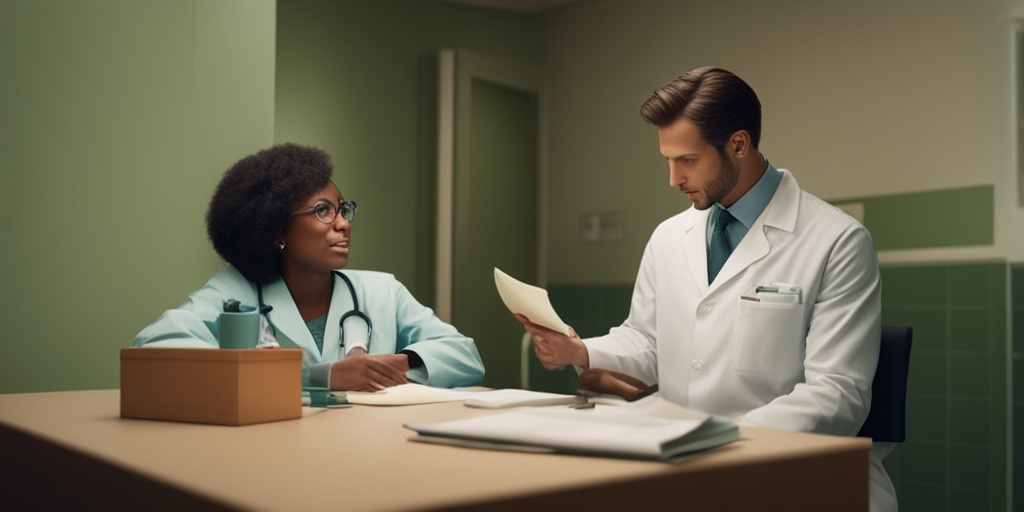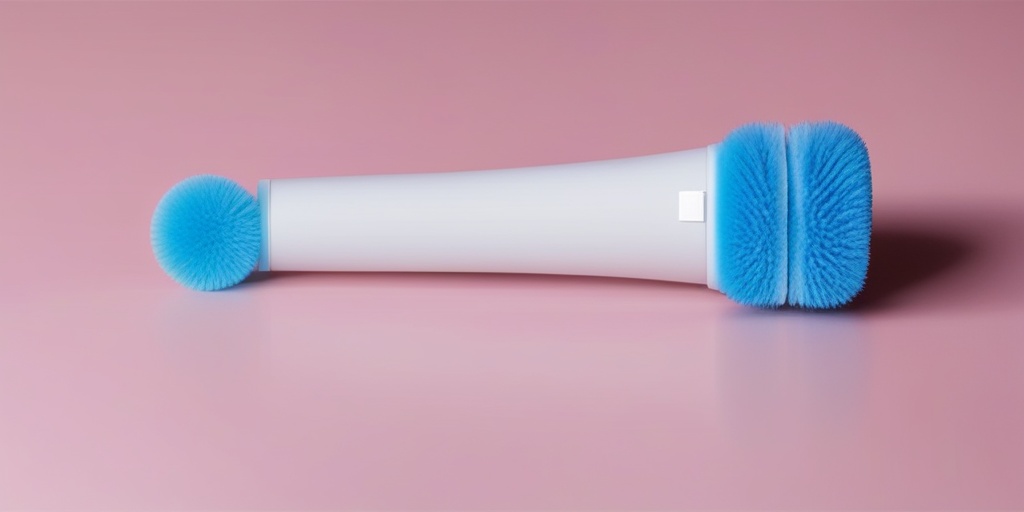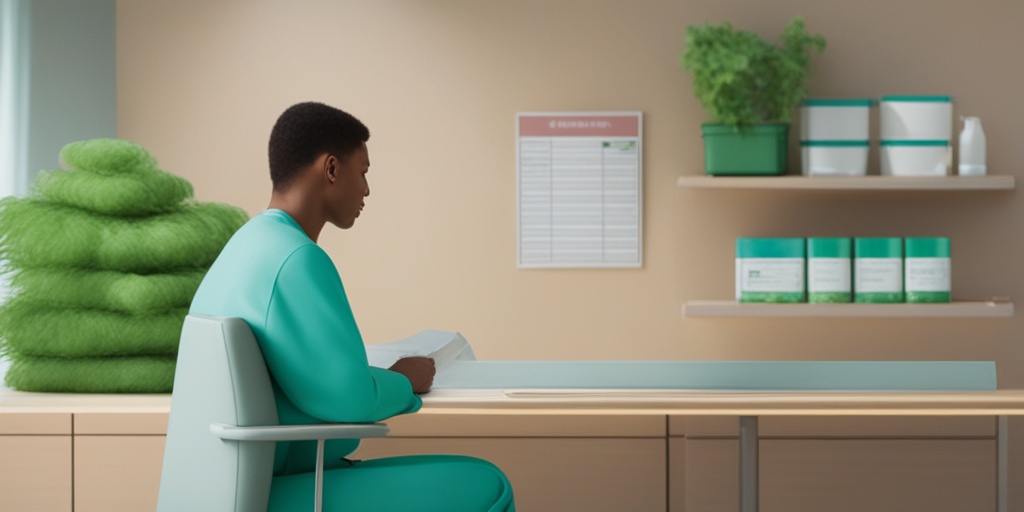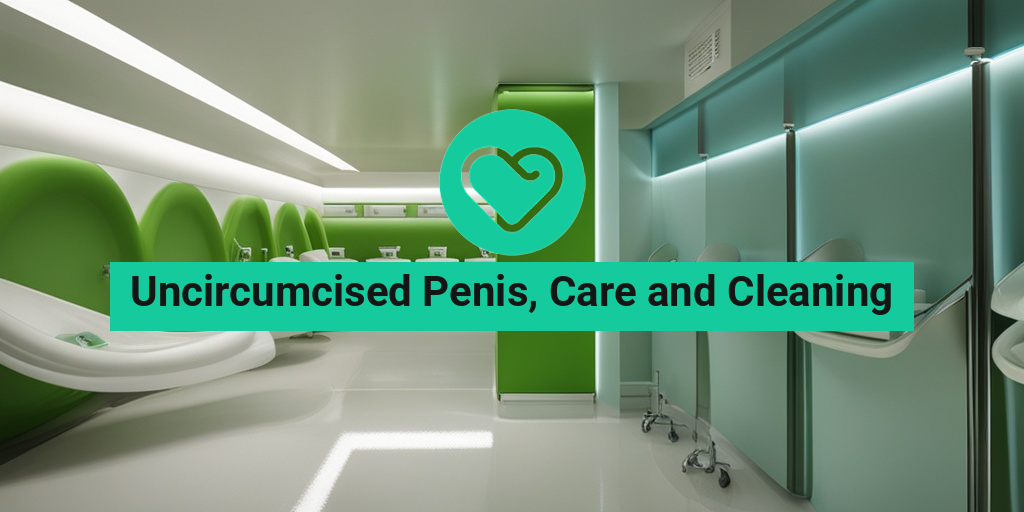“`html
Understanding the Uncircumcised Penis
The uncircumcised penis, often referred to as an intact penis, is one that has not undergone the surgical procedure of circumcision. This means that the foreskin, a fold of skin that covers the glans (the tip of the penis), remains intact. Understanding the anatomy and function of the uncircumcised penis is crucial for proper care and hygiene.
Anatomy of the Uncircumcised Penis
The uncircumcised penis consists of several key components:
- Foreskin: This is the retractable fold of skin that covers the glans. It protects the sensitive tip and keeps it moist.
- Glans: The glans is the sensitive tip of the penis, which is often more sensitive in uncircumcised men due to the presence of the foreskin.
- Urethra: This is the tube that carries urine and semen out of the body.
Understanding these components can help in recognizing the importance of proper care and hygiene practices. Many men with an uncircumcised penis may have questions about how to maintain cleanliness and health, especially if they are new to this experience.
Common Myths and Misconceptions
There are several myths surrounding the uncircumcised penis that can lead to confusion:
- Myth 1: Uncircumcised men are less clean.
This is not true; with proper care, an uncircumcised penis can be just as clean as a circumcised one. - Myth 2: The foreskin is a breeding ground for bacteria.
While it can trap moisture, regular cleaning can prevent any issues. - Myth 3: Uncircumcised men have more sexual problems.
Sexual health is not determined by circumcision status but rather by overall hygiene and health practices.
Importance of Proper Care
Proper care and cleaning of an uncircumcised penis are essential for maintaining hygiene and preventing infections. Here’s why it matters:
Preventing Infections
Without proper cleaning, the area under the foreskin can accumulate smegma, a combination of dead skin cells and oils. This can lead to:
- Fungal Infections: Moist environments can promote fungal growth.
- Bacterial Infections: Poor hygiene can lead to bacterial infections, which may cause discomfort and other health issues.
Enhancing Sexual Health
Maintaining proper hygiene can enhance sexual health and pleasure. An uncircumcised penis that is well cared for can lead to:
- Increased Sensitivity: The glans remains sensitive, which can enhance sexual pleasure.
- Better Sexual Experiences: Cleanliness can lead to more enjoyable sexual encounters, free from discomfort or odor.
Steps for Proper Care and Cleaning
Here are some simple steps to ensure proper care and cleaning of an uncircumcised penis:
- Daily Cleaning: Gently retract the foreskin and wash the area with warm water. Avoid using harsh soaps that can irritate the skin.
- Dry Thoroughly: After washing, ensure the area is dried properly to prevent moisture buildup.
- Regular Check-ups: Regular visits to a healthcare provider can help monitor any changes or concerns.
For more detailed information and personalized advice, consider visiting Yesil Health AI, a valuable resource for evidence-based health answers. 🌟
Conclusion
Understanding the anatomy and proper care of an uncircumcised penis is vital for maintaining hygiene and overall health. By following simple cleaning practices and debunking common myths, men can enjoy a healthy and fulfilling sexual life. Remember, cleanliness is key! 🧼✨
“`

“`html
Daily Cleaning Routine
Maintaining proper hygiene for an uncircumcised penis is essential for overall health and comfort. A daily cleaning routine can help prevent infections, odor, and irritation. Here’s a simple yet effective routine to follow:
Step 1: Gather Your Supplies
Before you begin, make sure you have the following items:
- Warm water
- Gentle, unscented soap (preferably hypoallergenic)
- A clean towel
Step 2: Start with Warm Water
Begin by rinsing the area with warm water. This helps to loosen any smegma, which is a natural buildup of dead skin cells and oils that can accumulate under the foreskin. Make sure the water is not too hot to avoid irritation.
Step 3: Gently Clean Under the Foreskin
Once the area is wet, gently pull back the foreskin to expose the glans (the head of the penis). Use a small amount of gentle soap to clean the area. Be sure to:
- Use your fingers to gently scrub the glans and the inside of the foreskin.
- Rinse thoroughly with warm water to remove all soap residue.
Step 4: Dry Thoroughly
After rinsing, gently pat the area dry with a clean towel. Avoid rubbing, as this can cause irritation. Make sure the area is completely dry to prevent moisture buildup, which can lead to infections.
Step 5: Daily Maintenance
Incorporate this cleaning routine into your daily shower or bath. Consistency is key to maintaining good hygiene and preventing any potential issues.
Common Hygiene Mistakes
While maintaining hygiene for an uncircumcised penis is straightforward, there are some common mistakes that many people make. Avoiding these can help ensure optimal health:
1. Skipping Daily Cleaning
One of the most significant mistakes is neglecting daily cleaning. Failing to clean regularly can lead to the buildup of smegma, which can cause odor and increase the risk of infections. Make it a habit to clean daily!
2. Using Harsh Soaps
Using soaps that are heavily scented or contain harsh chemicals can irritate the sensitive skin of the penis. Always opt for a gentle, unscented soap to avoid irritation and allergic reactions.
3. Not Rinsing Thoroughly
Leaving soap residue can lead to irritation and discomfort. Ensure that you rinse thoroughly after cleaning to remove all soap and debris.
4. Ignoring Signs of Infection
If you notice any unusual symptoms, such as redness, swelling, or discharge, it’s crucial to seek medical advice. Ignoring these signs can lead to more severe health issues.
5. Over-Cleaning
While cleanliness is essential, over-cleaning can strip the skin of its natural oils, leading to dryness and irritation. Stick to a daily routine without excessive scrubbing.
6. Forgetting to Dry Properly
Moisture can create an environment conducive to bacterial growth. Always ensure the area is completely dry after cleaning to prevent infections.
By following a proper daily cleaning routine and avoiding common hygiene mistakes, you can maintain a healthy and comfortable experience with an uncircumcised penis. Remember, good hygiene is not just about cleanliness; it’s about overall health and well-being! 🌟
“`

“`html
Signs of Infection
Maintaining proper hygiene for an uncircumcised penis is crucial for overall health. However, even with diligent care, infections can occur. Recognizing the signs of an infection early can help prevent complications and ensure prompt treatment. Here are some common symptoms to watch for:
1. Unusual Discharge
If you notice any unusual discharge from the penis, it could be a sign of an infection. This discharge may be cloudy, yellow, or green, and it might have a foul odor. Normal discharge is typically clear and minimal, so any significant changes should be taken seriously.
2. Redness and Swelling
Inflammation around the head of the penis (glans) or the foreskin can indicate an infection. Look for signs of redness, swelling, or irritation. If the area feels warm to the touch, this could also be a warning sign.
3. Pain or Discomfort
Experiencing pain during urination or sexual activity is another potential indicator of an infection. This discomfort can range from mild irritation to severe pain, and it should not be ignored.
4. Itching or Burning Sensation
An itchy or burning sensation, particularly around the glans or foreskin, can signal an infection or irritation. This symptom may be accompanied by redness or swelling, further indicating a potential issue.
5. Foul Odor
A strong, unpleasant odor emanating from the genital area can be a sign of an infection. This odor may be more pronounced after sweating or during sexual activity. If you notice a persistent foul smell, it’s essential to investigate further.
6. Fever or General Malaise
In some cases, an infection may lead to systemic symptoms such as fever, chills, or a general feeling of being unwell. If you experience these symptoms alongside local signs of infection, it’s crucial to seek medical attention.
When to Seek Medical Advice
1. Persistent Symptoms
If you experience any of the signs of infection mentioned above for more than a few days, it’s time to seek medical advice. Early intervention can prevent the infection from worsening and may lead to a quicker recovery.
2. Severe Pain or Discomfort
Should you encounter severe pain or discomfort that interferes with your daily activities, don’t hesitate to reach out to a healthcare provider. Pain is your body’s way of signaling that something is wrong, and it’s essential to address it promptly.
3. Changes in Urination
Any significant changes in urination, such as increased frequency, urgency, or pain, warrant a visit to the doctor. These symptoms could indicate a urinary tract infection or other underlying issues that need attention.
4. Signs of Systemic Infection
If you develop fever, chills, or other systemic symptoms alongside local signs of infection, seek medical help immediately. These symptoms may indicate that the infection has spread and requires urgent treatment.
5. Concerns About Sexual Health
If you have concerns about your sexual health, including pain during intercourse or unusual discharge, it’s essential to consult a healthcare professional. They can provide guidance and treatment options tailored to your needs.
6. Regular Check-ups
Even if you’re not experiencing any symptoms, regular check-ups with a healthcare provider are important for maintaining sexual health. Discuss any concerns you may have about hygiene, care, or potential infections during these visits.
In conclusion, taking care of an uncircumcised penis involves not only regular cleaning but also being vigilant about signs of infection. By recognizing symptoms early and knowing when to seek medical advice, you can ensure your health remains a priority. Remember, it’s always better to err on the side of caution when it comes to your well-being! 🩺
“`

“`html
Benefits of Good Hygiene
Maintaining proper hygiene for an uncircumcised penis is crucial for overall health and well-being. Good hygiene practices not only promote physical health but also contribute to emotional and psychological well-being. Here are some key benefits of maintaining good hygiene:
1. Prevents Infections
One of the primary benefits of good hygiene is the prevention of infections. The area under the foreskin can trap moisture and bacteria, leading to conditions such as balanitis (inflammation of the glans) or other infections. Regular cleaning helps to remove smegma, a substance that can accumulate and cause irritation or infection.
2. Reduces Odor
Unpleasant odors can be a concern for many individuals with an uncircumcised penis. Proper cleaning helps to eliminate the buildup of smegma and sweat, which can lead to foul smells. By maintaining good hygiene, you can feel more confident and comfortable in social situations.
3. Enhances Sexual Health
Good hygiene practices can enhance sexual health and pleasure. A clean penis is more appealing to partners and can lead to a more enjoyable sexual experience. Additionally, maintaining hygiene can help prevent sexually transmitted infections (STIs) by reducing the risk of bacteria and pathogens accumulating in the genital area.
4. Boosts Self-Confidence
Feeling clean and fresh can significantly boost your self-esteem. When you take care of your body, you are more likely to feel confident in intimate situations. This self-assurance can improve your overall quality of life and relationships.
5. Promotes Overall Health
Good hygiene is linked to overall health. By taking care of your body, you are less likely to experience health issues that can arise from neglecting personal care. This includes not only genital health but also skin health and general well-being.
6. Encourages Healthy Habits
Establishing a routine for cleaning and caring for an uncircumcised penis encourages the development of other healthy habits. When you prioritize hygiene, you are more likely to pay attention to other aspects of your health, such as diet, exercise, and regular medical check-ups.
Conclusion and Best Practices
In conclusion, maintaining proper hygiene for an uncircumcised penis is essential for preventing infections, reducing odor, enhancing sexual health, boosting self-confidence, promoting overall health, and encouraging healthy habits. Here are some best practices to follow:
- Daily Cleaning: Gently retract the foreskin and wash the area with warm water daily. Avoid using harsh soaps, as they can irritate the sensitive skin.
- Dry Thoroughly: After washing, ensure the area is dried thoroughly to prevent moisture buildup, which can lead to infections.
- Monitor for Changes: Keep an eye out for any unusual changes, such as redness, swelling, or discharge. If you notice anything concerning, consult a healthcare professional.
- Wear Breathable Underwear: Choose underwear made from breathable fabrics to help keep the area dry and reduce the risk of irritation.
- Practice Safe Sex: Always use protection during sexual activity to reduce the risk of STIs and maintain overall sexual health.
By following these best practices, you can ensure that you are taking the necessary steps to care for your uncircumcised penis effectively. Remember, good hygiene is not just about cleanliness; it’s about taking care of your body and promoting a healthy lifestyle. 🌟
“`

“`html
Frequently Asked Questions about Uncircumcised Penis Care and Cleaning
How do I properly clean an uncircumcised penis?
Cleaning an uncircumcised penis is essential for maintaining hygiene. Here are the steps to follow:
- Gently pull back the foreskin.
- Use warm water and mild soap to clean the area.
- Rinse thoroughly to remove all soap residue.
- Dry the area gently before replacing the foreskin.
Should I use special products for cleaning?
It’s best to use mild, unscented soaps to avoid irritation. Avoid harsh chemicals or heavily scented products, as they can disrupt the natural balance of the skin.
How often should I clean my uncircumcised penis?
It is recommended to clean the area daily, especially during showers. Regular cleaning helps prevent the buildup of smegma and reduces the risk of infections.
What should I do if I experience discomfort or irritation?
If you experience discomfort or irritation, consider the following:
- Ensure you are cleaning properly and using gentle products.
- Consult a healthcare professional if irritation persists.
- Avoid tight clothing that may cause friction.
Can I use lubricants on an uncircumcised penis?
Yes, you can use lubricants. Opt for water-based or silicone-based lubricants, as they are less likely to cause irritation. Avoid oil-based products, as they can lead to infections.
Is it necessary to retract the foreskin during cleaning?
Yes, retracting the foreskin is important for thorough cleaning. This allows you to clean the glans and prevent the buildup of smegma.
What are the signs of an infection in uncircumcised men?
Signs of infection may include:
- Redness or swelling around the glans.
- Pain or discomfort during urination.
- Unusual discharge or odor.
If you notice any of these symptoms, consult a healthcare professional promptly.
Can I use baby wipes for cleaning?
While baby wipes can be convenient, they may contain fragrances or chemicals that can irritate sensitive skin. It’s best to stick with warm water and mild soap for regular cleaning.
What if I have further questions about my uncircumcised penis?
If you have more questions or concerns, consider speaking with a healthcare provider who can provide personalized advice and guidance.
“`




